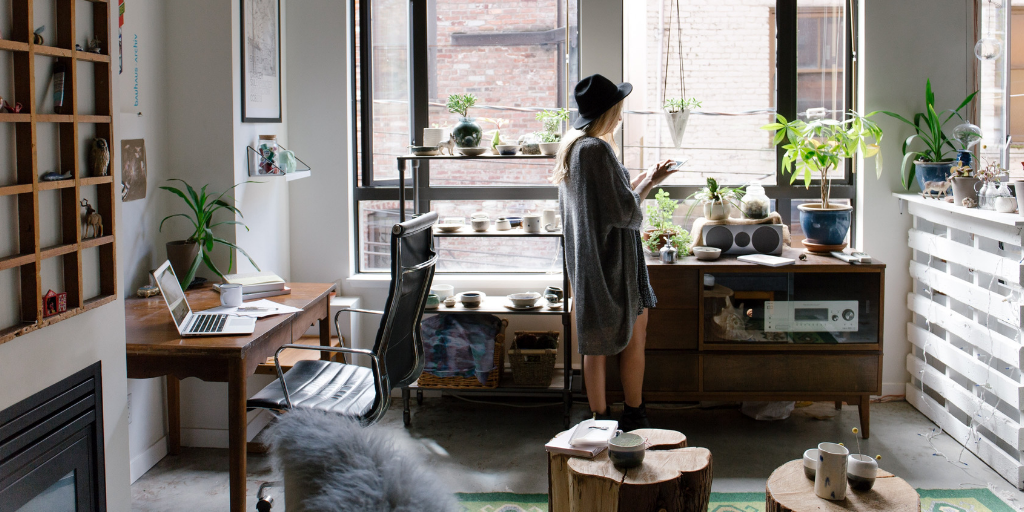Self-isolation is about protecting others and slowing down the spread of COVID-19. The government is recommending that anyone who has the virus, or might have been exposed to it, limits the number of people they come into contact with. You can find the guidance here. Self isolation is the most effective way of preventing the coronavirus from spreading but it is also… well… isolating. And that poses its own challenges.
Minding your mental health is super important if you are physically isolating and Mind have created an awesome little guide.
But what about you? Students didn’t quite plan on spending the rest of your academic year making sure you are 2m away from other people or potentially even stuck in your home now that unis have closed!
Though this sux, and it sux globally and for everyone, there are ways of making it more tolerable!
Keep routine
Humans are creatures of habit, and routines offer a way to promote health and wellbeing through creating structure and organisation. Bottom line, having a routine can greatly improve your health. So get up at your usual time, have a shower, get dressed (staying in pyjamas is a mood killer!) and set yourself up for a useful and productive day.
If you are finishing up assignments or essays set yourself a timetable and a schedule and stick to it.
Chunking
Within your routing be sure to chunk your day – a full day can feel much longer than usual is it just stretches out in front of you. Align your routine to those of friends and take breaks at the same time so you can chat/game/whatever in the breaks. With little kids we call it parallel play… I guess we’re all kids now!
Dividing the day into smaller chunks makes it more routine but also means you are more likely to go to sleep each night feeling you accomplished something. Lethargy and feeling as though there is no good reason to do anything is the quickest way to slip into anxiety or feeling overwhelmed
Turn off the news
Hands up if you’re finding the news a little overwhelming at the moment?
While having the facts minimises fear too much news can be debilitating and provoke feelings of uncertainty. This is especially true for those with pre-existing mental-health issues such as depression and anxiety.
Remember that feeling scared or worried at times like these is not only understandable but perfectly normal but extensive media coverage and social media following can mean a relentless bombardment!
We all know you aren’t going to turn it off but you can be selective about your sources, limited in the times at which you turn your screens on, disengage from the social media firehose and stop news consumption at least an hour before bed.
No one needs those kinds of nightmares!
Physical isolation not social isolation
Not being able to see people physically over a coffee (or avo toast!) doesn’t need to mean not maintaining relationships.
From video calling with family and friends, gaming with strangers, facetime or chatting with student services there is no reason to be fully isolated. And in fact being fully isolated is not what you should be going for! It’s important to keep talking (not just liking)
Isolation can have a profound effect on people’s physical, as well as mental health so make sure you ask for help if you’re feeling low and you keep talking!
Go easy on your online shopping
With online shopping through the roof, Amazon announced they will be prioritising shipments of essential items only, while Ocado had to shut down the site temporarily to keep up with demand. It is very tempting to spend loads of money now stockpiling and filing the house with excessive amounts of products.
As with everything, common sense can go a long way. Buy what you need and don’t turn into a compulsive toilet paper shopper. As for everything else, well buying the entire asos collection is not considered sensible pass time for self-isolation. But you could take some online sewing classes and start revamping your wardrobe?
Use technology right
Imagine trying to get through the Spanish Flu without all the wonders of technology we are blessed with today!
Tech is assisting with keeping social but we are also in the golden age of original programming. Between Netflix (check out WIRED’s guide to the best shows) and Amazon Prime there is over a year’s worth of shows. So when you are ready to unwind there is plenty to unwind with.
And if you are looking to use this time to learn stuff or develop skills there is a mind-boggling amount of stuff out there – from learning new skills to new languages, to reading new books and of course developing financial skills you should challenge yourself to come out of isolation wiser and more skilled than you went in!

